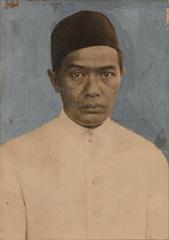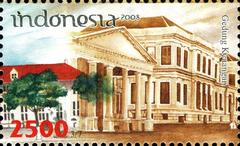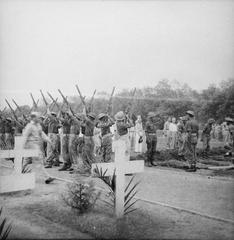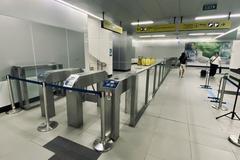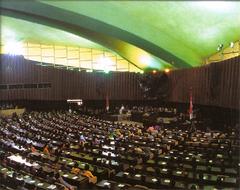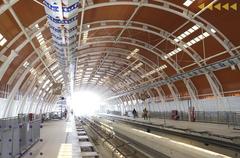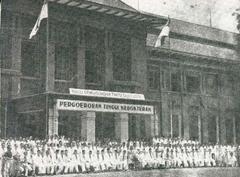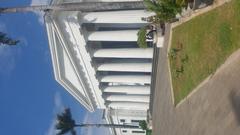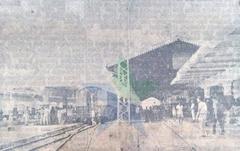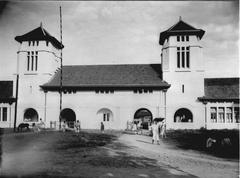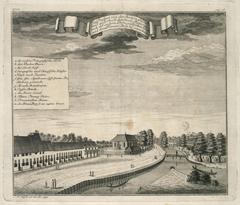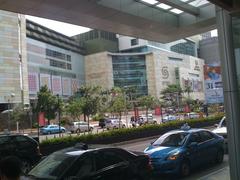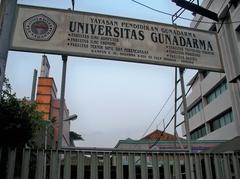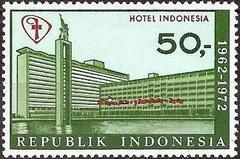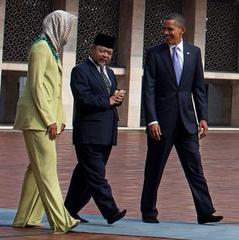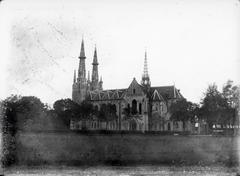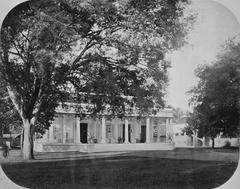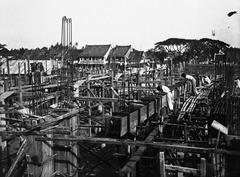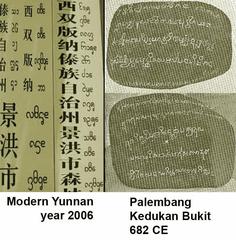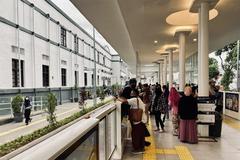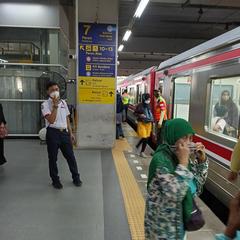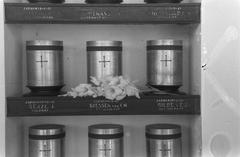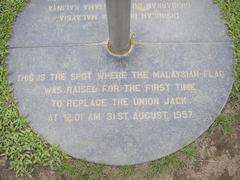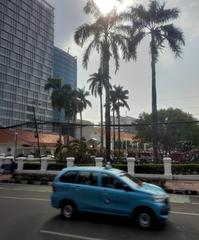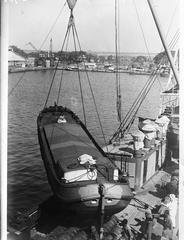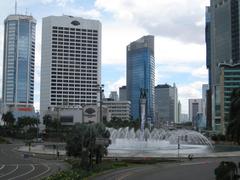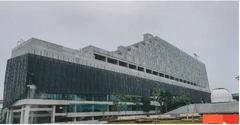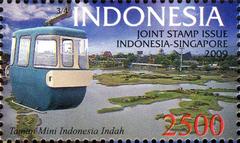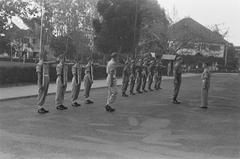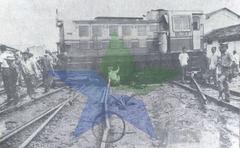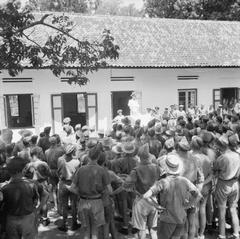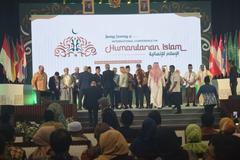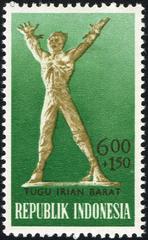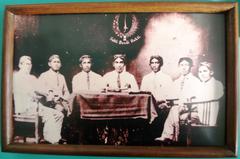
National Archives of Indonesia Jakarta: Visiting Hours, Tickets, and Historical Sites Guide
Date: 03/07/2025
Introduction
The National Archives of Indonesia (Arsip Nasional Republik Indonesia, ANRI) is both a vital state institution and a cultural landmark, safeguarding centuries of the nation’s documentary heritage. Located in Jakarta, ANRI is not only a research center for historians and scholars but also an accessible, enriching destination for tourists and citizens eager to explore Indonesia’s past. This guide offers comprehensive information about visiting the National Archives—including opening hours, ticketing, accessibility, nearby attractions, and travel tips—so you can make the most of your historical journey through Jakarta.
For further resources, consult the official National Archives of Indonesia website and historical overviews (history.state.gov).
Table of Contents
- Introduction and Overview
- Historical Background and Institutional Development
- ANRI’s Collections and Holdings
- Architectural and Cultural Heritage
- Visitor Information
- Nearby Historical Attractions
- Digital Initiatives and International Collaboration
- Frequently Asked Questions (FAQ)
- Conclusion
- References and Useful Links
Historical Background and Institutional Development
Colonial Origins and National Evolution
The roots of Indonesia’s archival tradition trace back to the Dutch colonial era, with the establishment of the Landsarchief in 1892. This institution set rigorous standards for record-keeping, preserving documents from the Dutch East India Company (VOC) and colonial governance (ANRI History; Wikipedia). Notably, Jacob Anne van der Chijs, the first state archivist, played a pivotal role in shaping archival management.
During the Japanese occupation (1942–1945), the archives continued functioning under the Kobunsjokan administration. After Indonesia’s independence in 1945, the archives transitioned into state hands, reflecting the nation’s changing identity through subsequent renamings and legal reforms (ANRI History; MOWID ANRI).
The enactment of Law No. 7 of 1971 and subsequent presidential decrees established ANRI as a non-departmental government institution. In the 1990s, structural reforms expanded its reach with specialized departments and provincial offices (ANRI History).
ANRI’s Collections and Holdings
ANRI is home to one of Southeast Asia’s most comprehensive archive collections, spanning over four centuries. Major holdings include:
- VOC Archives: The world’s largest collection of Dutch East India Company records, recognized by UNESCO Memory of the World (DutchCulture).
- Colonial and Pre-Independence Records: Government documents, legal decrees, and correspondence from the Dutch and Japanese periods.
- Post-Independence Archives: Presidential decrees, parliamentary records, and legal documents.
- Personal Papers: Manuscripts and letters of prominent Indonesian and Dutch figures.
- Maps, Photographs, and Architectural Plans: Visual documentation of Indonesia’s historical and social evolution.
Ongoing digitization initiatives, in partnership with Dutch and global institutions, are expanding access to these invaluable resources (Global Heritage).
Architectural and Cultural Heritage
The National Archives Building
The historic National Archives Building, located at Jalan Gajah Mada No. 111, West Jakarta, was originally the private residence of Governor-General Reinier de Klerk in the late 18th century. This Indies-style mansion is a masterpiece of colonial architecture, featuring wide verandas, high ceilings, and lush gardens (Archnet; Wikipedia).
The building has been carefully restored, maintaining its classical columns, teak wood, and Dutch bricks. Modern climate control and security systems have been discreetly integrated to protect both the structure and archival collections (Binus Tourism).
While the main archive operations have relocated to a modern facility in South Jakarta (Jl. Ampera Raya No. 7), the Gajah Mada site serves as a museum and cultural venue, hosting exhibitions, workshops, and public events (Jakarta Old Town Tourism).
Visitor Information
Visiting Hours and Ticketing
- Location: Jalan Gajah Mada No. 111, West Jakarta
- Opening Hours: Tuesday to Sunday, 9:00 AM – 4:00 PM (Closed Mondays and public holidays)
- Admission: Free for all visitors; some special exhibitions or private events may require registration or a nominal fee (Official ANRI Website)
Check the official website for updated schedules, special event listings, and holiday closures.
Accessibility & Facilities
- Wheelchair Access: Ramps and accessible restrooms; some historic areas may have limited access.
- Restrooms and Refreshments: Public restrooms and a small café/refreshment area are available.
- Gardens: Well-maintained, shaded gardens ideal for relaxation or photography.
- Exhibition Labels: Bilingual displays in Bahasa Indonesia and English.
Guided Tours
Guided tours are available by advance request and are highly recommended for an in-depth understanding of the building, collections, and Indonesia’s archival history. English-speaking guides can be arranged (Official National Archives Website).
Travel Tips
- Dress Code: Modest attire is recommended.
- Photography: Allowed in public areas and gardens; restrictions may apply in exhibition spaces.
- Transport: Easy access by TransJakarta bus, taxi, or ride-hailing apps. Parking is limited.
- Best Visiting Times: Weekdays and mornings for fewer crowds.
Nearby Historical Attractions
Enhance your itinerary by visiting nearby sites:
- Jakarta Old Town (Kota Tua): A district rich in museums and colonial architecture.
- Fatahillah Square: The heart of Old Town, surrounded by historical landmarks.
- Jakarta History Museum and Wayang Museum: Explore the city’s layered past.
- National Monument (Monas): Indonesia’s most iconic landmark.
Digital Initiatives and International Collaboration
ANRI leads in digitizing archives, providing online access to VOC archives and other key collections (Global Heritage). Collaboration with international partners—including the Netherlands, UNESCO, and the Nieuwe Instituut—ensures preservation and broader scholarly engagement (Nieuwe Instituut; DutchCulture).
Frequently Asked Questions (FAQ)
Q: What are the National Archives of Indonesia visiting hours?
A: Tuesday to Sunday, 9:00 AM–4:00 PM; closed Mondays and public holidays.
Q: Is admission free?
A: Yes, general entry is free. Special events or exhibitions may require registration or tickets.
Q: Are guided tours available?
A: Yes, by prior arrangement. English-speaking guides may be requested.
Q: Is the building accessible for people with disabilities?
A: The site is generally accessible, but some historic areas may require assistance.
Q: Can I take photographs?
A: Photography is allowed in public areas and gardens; restrictions apply in some exhibitions.
Q: What other sites can I visit nearby?
A: Jakarta Old Town, the National Museum, Fatahillah Square, and Monas.
Conclusion
The National Archives of Indonesia is much more than a repository of documents—it is a living monument to the nation’s history, a hub for cultural exchange, and a welcoming site for all. With its blend of colonial architecture, lush gardens, and invaluable collections, ANRI invites visitors to discover the stories that have shaped Indonesia.
Before your visit, confirm operating hours and any special requirements on the official ANRI website. Enhance your experience by exploring related historical sites, and download the Audiala app for interactive tours and updates on exhibitions and events.
Experience Jakarta’s past, present, and future at the National Archives, and let your journey into Indonesia’s heritage begin.
References and Useful Links
- National Archives of Indonesia Official Website
- ANRI History
- Official National Archives of Indonesia
- National Archives Building Jakarta - Tripomatic
- National Archives Building, Jakarta - Wikipedia
- History.state.gov on Indonesia Archives
- Archnet - National Archives Building
- Nieuwe Instituut - Resituating Colonial Archives
- Global Heritage - Access to Asian Archives
- DutchCulture - National Archives Indonesia
- Binus Tourism - Gedung Arsip Nasional Observation Report
- Jakarta Old Town Tourism - National Archives Museum
- Ekaputrawisata - Is Jakarta Safe to Visit?

